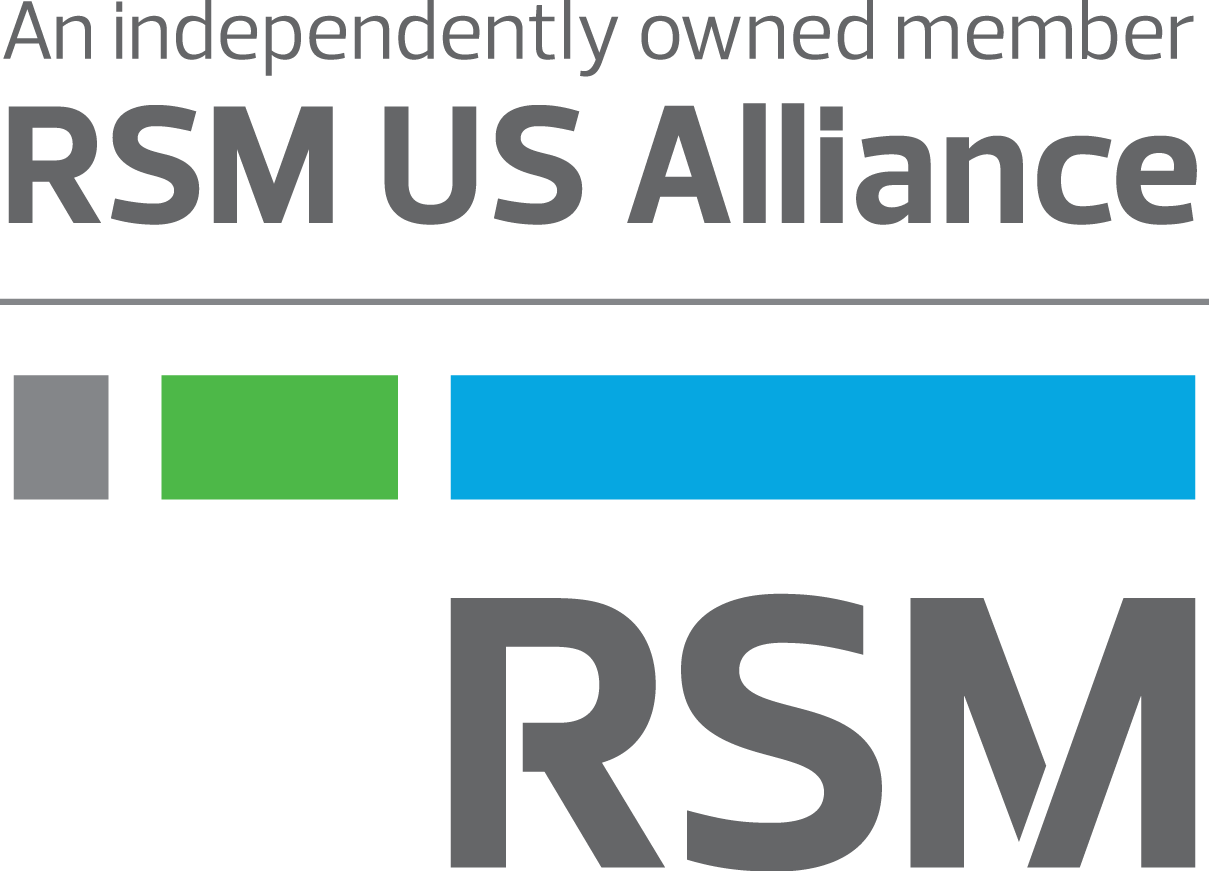
New Jersey enacts most significant tax changes in years
ARTICLE | July 10, 2023
Authored by RSM US LLP
Executive summary: New Jersey adopts comprehensive tax bill
On July 3, 2023, New Jersey Gov. Phil Murphy signed Assembly Bill 5323, making sweeping changes to the state’s corporate business tax (CBT) law. Included in the comprehensive tax bill are changes to global intangible low-taxed income (GILTI), world-wide and combined groups, corporate nexus standards, net operating losses (NOLs) investment company treatment, due dates and numerous other tax provisions. A high-level summary of the more salient changes follows below.
Corporate tax bill makes sweeping changes
International overhaul
The tax bill amends the treatment of GILTI to be treated as a dividend, and accordingly, now qualifies for the effective 95% deduction for such income when received from an 80% or more owned controlled foreign corporation. The change is effective for periods ending on and after July 31, 2023. Currently, only 50% of GILTI is excluded. The change is intended to make New Jersey a more taxpayer friendly jurisdiction for multinational corporations and more closely aligns with neighboring states with similar provisions.
The bill also eliminates the current 37.5% deduction for the foreign derived intangible income (FDII).
NOL changes
The legislation made a number of modifications to the NOL rules, including conforming to the federal 80% limitation, changing the ordering rules so that the NOL carryforward deduction is computed after the dividend received deduction and certain other deductions (so more NOLs would be generally available), and relaxing the rules regarding the usage of NOLs between combined group members. Finally, in certain circumstances, the state will be able to adjust NOLs from closed years up to 10 years prior.
Combined group changes
The tax bill adopts the so-called ‘Finnigan’ methodology. Accordingly, in computing the numerator and denominator of the allocation factor of the combined group, the combined group, as one taxpayer, takes into account all unitary receipts of all members of the combined group. New Jersey currently applies a ‘Joyce’ methodology (separate company approach) except when the affiliated group reporting method is elected.
The bill also amends the interest expense limitation for tax periods ending on and after July 31, 2022. For those periods, the interest expense limitation applies to a combined group as though the combined group filed a federal consolidated return. Regarding affiliates that were members of the federal consolidated return but were not members of the combined group included on the state combined return, the combined group and the affiliates will be treated as having filed one federal consolidated return. This provision essentially adopts existing New Jersey Division of Taxation policy issued through Tax Bulletin 87.
Additionally, the bill amends the period for which managerial member designations are binding from 10 periods to the current period and five successive periods.
World-wide reporting changes
The legislation amends world-wide group provisions and adds clarifying definitions. Effective for periods ending on and after July 31, 2022, the entire net income of non-U.S. corporations that are not members of a world-wide group or a water’s edge group does not include items of income or loss excluded or exempted from federal taxable income under a federal tax treaty. No other deduction, exclusion, or elimination is permitted for those excluded items. Non-U.S. corporations that are not a member of a combined group filing a New Jersey combined return on a world-wide basis should only include its income or loss included in federal taxable income limited to only the corporation’s effectively connect income or loss.
For periods ending on and after July 31, 2022, the terms ‘world-wide basis’ and ‘world-wide group’ includes all members of the combined group, wherever located or formed. The combined group must include all the income and attributes of the members regardless of how or whether those members file federal returns, without regard to any exemption or exclusion from federal taxable income under the terms of a tax treaty, except for federal deductions also allowed under the CBT, even if prohibited under the federal corporate income tax.
Bright-line corporate income tax nexus standard adopted
The legislation establishes a bright-line nexus rule that deems corporations deriving receipts or transactions from sources within the state to have substantial nexus for purposes of the CBT as follows:
- The corporation derives receipts from sources within the state in excess of $100,000 during the corporation’s fiscal or calendar year; or
- The corporation has 200 or more separate transactions delivered to customers in the state during the fiscal or calendar year. For purposes of this provision, any transaction that is a service transaction, “delivered to a customer” means where the benefit is received within the meaning of the sourcing sales of services under the sales factor
The new bright-line nexus rule does not replace existing nexus provisions under the CBT. Noteworthy, the new CBT nexus thresholds are identical to the state’s economic sales tax nexus law, but lower than many of the corporate net income factor-presence thresholds of the surrounding states including Connecticut ($500,000), Massachusetts ($500,000), New York ($1,000,000 indexed for inflation) and Pennsylvania ($500,000).
Special entities lose preferential treatment
Effective for periods ending on and after July 31, 2023, captive real estate investment trusts and captive regulated investment companies are taxed in the same manner as C corporations. The subject entities are not permitted to claim any deductions or expenses that were permitted for federal purposes when computing federal taxable net income. Real estate investment trusts were previously taxed at 4% and regulated investment companies were not subject to the CBT.
Due dates
For tax years ending on and after July 31, 2023, the due date of the return is the fifteenth day of the month immediately following the month of the original federal due date, or in the case of an extension, the fifteenth day of the month immediately following the month of the extended due for filing the taxpayer’s federal return. The change, while seemingly minor, clarifies the due date after the federal return from ‘30 days’ to the fifteenth day, preventing any confusion for state returns due on a day different than the fifteenth if the original or extended federal return was due in February or in a month with 31 days.
Other miscellaneous provisions
A summary of other noteworthy provisions in the tax bill includes the following:
- The 50% installment payment threshold has risen to $1,500 from $500, effective for fiscal or calendar years ending on or after July 31, 2023
- Effective for taxable years beginning on and after Jan. 1, 2023, and not withstanding other applicable sourcing provisions, a gross income taxpayer’s income from a trade, business, partnership, or S corporation is sourced consistent with the CBT, e.g., sourcing of services based on benefit received and using a single sales factor. However, income from salary, wages, tips, fees, commissions, bonuses, and other similar forms of remuneration to be sourced pursuant to the provisions of the individual income tax law
- A discussion point under budget negotiations, the 2.5% CBT surcharge will sunset this year as was intended under the 2021 extension. The surcharge has been in effect since 2018. The general CBT tax rates remain unchanged by the bill.
- The intercompany interest and royalty payment expense disallowance (addbacks) are repealed for tax years ending on or after July 31, 2023
- Changes for public corporations with deferred tax liabilities relating to combined reporting, allowing a 1% deduction for the difference for tax years beginning on or after Jan. 1, 2023, but before Jan. 1, 2030, and 5% of any used amount of the deduction is permitted on or after Jan. 1, 2030. This replaces the 10% deduction that was planned for tax years beginning with the 2023 period over a 10-year period
- Numerous technical clarifications and corrections
Takeaways
Many of the changes adopted as part of the CBT overhaul represent taxpayer-friendly changes, including the expiration of the CBT surcharge, the treatment of multinational corporations and the modification to the NOL rules. Taxpayers should evaluate these changes in determining whether estimated tax payments should be adjusted and whether the company’s effective tax rate is impacted. The changes to the pass-through entity sourcing rules also represents a major shift in tax policy and should be reviewed for such entities. Taxpayers with questions about the extent or the impact of the tax bill should reach out to their New Jersey tax advisers.
This article was written by Harlan Kwiatek , Amanda Pucciarelli, Robert Zonenshein and originally appeared on 2023-07-10.
2022 RSM US LLP. All rights reserved.
https://rsmus.com/insights/tax-alerts/2023/new-jersey-enacts-most-significant-tax-changes-in-years.html
The information contained herein is general in nature and based on authorities that are subject to change. RSM US LLP guarantees neither the accuracy nor completeness of any information and is not responsible for any errors or omissions, or for results obtained by others as a result of reliance upon such information. RSM US LLP assumes no obligation to inform the reader of any changes in tax laws or other factors that could affect information contained herein. This publication does not, and is not intended to, provide legal, tax or accounting advice, and readers should consult their tax advisors concerning the application of tax laws to their particular situations. This analysis is not tax advice and is not intended or written to be used, and cannot be used, for purposes of avoiding tax penalties that may be imposed on any taxpayer.
RSM US Alliance provides its members with access to resources of RSM US LLP. RSM US Alliance member firms are separate and independent businesses and legal entities that are responsible for their own acts and omissions, and each are separate and independent from RSM US LLP. RSM US LLP is the U.S. member firm of RSM International, a global network of independent audit, tax, and consulting firms. Members of RSM US Alliance have access to RSM International resources through RSM US LLP but are not member firms of RSM International. Visit rsmus.com/aboutus for more information regarding RSM US LLP and RSM International. The RSM(tm) brandmark is used under license by RSM US LLP. RSM US Alliance products and services are proprietary to RSM US LLP.

VPTAX is a proud member of RSM US Alliance, a premier affiliation of independent accounting and consulting firms in the United States. RSM US Alliance provides our firm with access to resources of RSM US LLP, the leading provider of audit, tax and consulting services focused on the middle market. RSM US LLP is a licensed CPA firm and the U.S. member of RSM International, a global network of independent audit, tax and consulting firms with more than 43,000 people in over 120 countries.
Our membership in RSM US Alliance has elevated our capabilities in the marketplace, helping to differentiate our firm from the competition while allowing us to maintain our independence and entrepreneurial culture. We have access to a valuable peer network of like-sized firms as well as a broad range of tools, expertise, and technical resources.
For more information on how the VPTAX can assist you, please call us at (408) 278-8370.